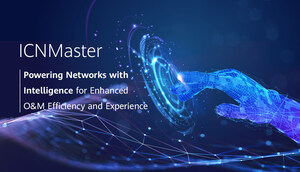Huawei's Customers Win Three World Smart City Awards and Three Nominations at the 2020 Smart City Expo World Congress
--Shanghai, Shenzhen, and Nanhai District of Foshan has won awards
SHANGHAI, Nov. 19, 2020 /PRNewswire/ -- On November 18th, at the 10th Smart City Expo World Congress, Huawei's customers won three World Smart City Awards and three nominations for their innovative ideas and outstanding achievements in driving smart city initiatives. Shenzhen has won the Enabling Technologies Award for technology-enabled refined city governance. Shanghai has been recognized with the City Award, an award which recognizes world-class smart cities. Nanhai District of Foshan in Guangdong has won Economy Award. Tianjin Economic-Technological Development Area (TEDA), Zhengdong New District of Henan, Huangshan of Anhui and have been nominated for the Inclusive & Sharing Cities Award, Innovative Idea Award, Governance & Service Award and Economy Award respectively. These recognitions demonstrated not only the committee's recognition of the winners, but also the industry's appreciation of Huawei in smart city construction. During the Expo, Huawei also hosted a Smart City Summit themed "Empowering the City Being with Intelligence and Vitality" to discuss future city construction.
Yue Kun, President of the Global Government Business Unit of Huawei, said, "As we navigate further through the construction and development of smart cities, we have to concretely and practically begin a new stage of smart city development with our experience and vision. Given smart city is a new form of future city development, we need to focus on the core pain points of the city, adhere to a people-oriented concept, aim at the sense of acquisition and experience of urban services, and carry out horizontal connection and process reengineering. This process includes the overall planning of the business system, synergy across five major tech domains, the efficient connection of the data system and the sustainable development of the operating system. Only through the systematic construction of our happy home, can we build City Intelligent Twins and create a better city life together."
A Smart and Happy City Based on Technology: Shanghai Wins the City Award
The development of a city depends on the concept, foundation, and pattern of city construction. Shanghai, a world-class smart city powered by the innovations of Huawei in the digital era, has been recognized with the distinguished global City Award.
In Xuhui District, Shanghai, Huawei and the Urban Operation and Management Center jointly developed the "12345" intelligent sensing system by using AI technologies to dynamically analyze the interrelationship among hot topics from three dimensions: time, space, and people. Based on the historical handling of hot topics, a fundamental model is extracted to build a closed-loop process of intelligent awareness discovery, data analysis, and man-machine collaborative handling. In this way, trending hot topics and risks can be predicted in advance, providing decision-making support for efficient service handling.
During the construction of a smart urban area, Huangpu District of Shanghai innovatively proposed the overall goal and construction task of "IoT, Data Connection, and Intelligent Connection". Guided by an innovative world-class design, it will create the Urban Operation Management Center in Huangpu District through innovative, comprehensive, all-time-space, full-process, and closed-loop operation and management models. Currently, the district has run 15 special applications in four sectors: public security, public management, public service, and economic operation. In the process of implementing refined management of megacities, the concept of "unified network management" promotes smart city governance for a smarter Huangpu District.
Technology Makes Life Better: Shenzhen Wins the Enabling Technologies Award
Based on the goal of building a "Double First-Class New Smart City", Shenzhen builds the "Pengcheng Intelligent Twins" based on technological enablement to continuously improve the comprehensive competitiveness of the city. By establishing six systems — public service, public security, city governance, smart industry, big data service, and perception network — Shenzhen has preliminarily built a new smart city integrated construction pattern. This pattern features platforms, applications, and the city's smart brain, which comprehensively improves the development of fields such as city governance, public service, and industry development.
Shenzhen has painted a vivid picture of the future smart landscape in an "all-in-ONE" manner: ONE map for the city, ONE number for all city services, ONE click for all-round visibility, ONE structure for integrated operation and linkage, ONE-stop innovation and entrepreneurship, and ONE screen for smart living. With a digitally connected government service system, all e-government services are constantly upgraded and enhanced. In 2020, Shenzhen plans to build 46,000 5G base stations, making it the first city in China to achieve full coverage of 5G infrastructure and independent networking. Shenzhen is on the fast track to becoming an innovative highland for industry intelligence and technology leadership.
In addition, by establishing e-Government services with reporting and processing in seconds, Shenzhen has enabled 350 core services in 53 government offices to move to the cloud, realizing cloud platform management within the city and districts, enhancing quality of public service. Through the city cloud platform, data will be transmitted directly, minimizing the need for in-person procedures, empowering a new wave of contact-free services around various services in the city. In addition, Shenzhen leverages multiple ways to optimize business operations hours, shortening the time required for new enterprise registration and approval to less than a minute. It only takes six seconds for the filing of enterprise projects, from application to approval.
Nanhai District of Foshan in Guangdong has won Economy Award.
Nanhai District of Foshan was awarded for the Economy Award for stepping from history to modernity. Nanhai District uses new ICT to build a "Digital Nanhai" that integrates the centers of data integration, operation monitoring, decision-making analysis, comprehensive exhibition, and command and collaboration. As such, the city can be viewed on a single map, with smart operation on a single screen and unified applications on a single cloud.
Huawei's Customers Recognized as Finalists for Multiple Awards
Tianjin Economic-Technological Development Area was among the finalists for the Inclusive & Sharing Cities Award for its achievement in nurturing a favorable environment for smart city construction. In 2018, Huawei partnered with the Tianjin Economic-Technological Development Area and announced China's first "AI+ Smart City" — TEDA New City. After three years of construction, the smart TEDA New City has had a series of world-class infrastructure and application systems to provide strong support for social innovation and social services. It has become a prosperous, livable, and happy modern city and set a new benchmark for smart city establishment.
Zhengzhou Smart Island was acknowledged as a nominee for the Innovative Idea Award for its innovative labs. Centering on "future" and "innovation", Zhengzhou Smart Island has built a future city panorama lab to construct future-oriented city life scenarios. Currently, drones, 5G, and AI are used to monitor the environment in an all-round manner, which is an automated and efficient replacement of manual operations. Based on big data, the Smart Island implements 360-degree detailed enterprise profile, builds a precise investment promotion system, and constructs a dynamic database of 54 million enterprises across China. The Smart Island performs digital modeling for every physical object to form a 1:1 digital twin, building a new showcase of smart cities and a new engine for digital economy transformation.
Huangshan City was recognized as a nominee for the Governance & Service Award for making a digital transformation as a famous tourism city. Based on advanced concepts and technologies such as cloud computing and big data, Huangshan City follows the principle of "platform sharing, content co-construction, and achievement sharing" to accelerate the construction of data resource standards and improve city infrastructure construction. Based on the city brain of Huangshan City, the operation and command center of the "digital government" comes into being. Also, by focusing on innovating the smart big data analysis applications in culture, tourism, and environmental protection, Huangshan City facilitates the digital transformation of the culture and tourism industry.
In the smart city domain, Huawei uses City Intelligent Twins to coordinate the collaborative planning and construction of multiple technical platforms, such as 5G, cloud, AI, and smart terminals, enabling service collaboration. Huawei works with partners to innovate multi-scenario solutions, such as government service, social governance, public service, ecological civilization, and economic service, meeting diversified city development requirements and helping customers build city's intelligent twins to improve overall competitiveness. Currently, Huawei has provided smart city solutions for more than 200 cities in over 40 countries.





Share this article